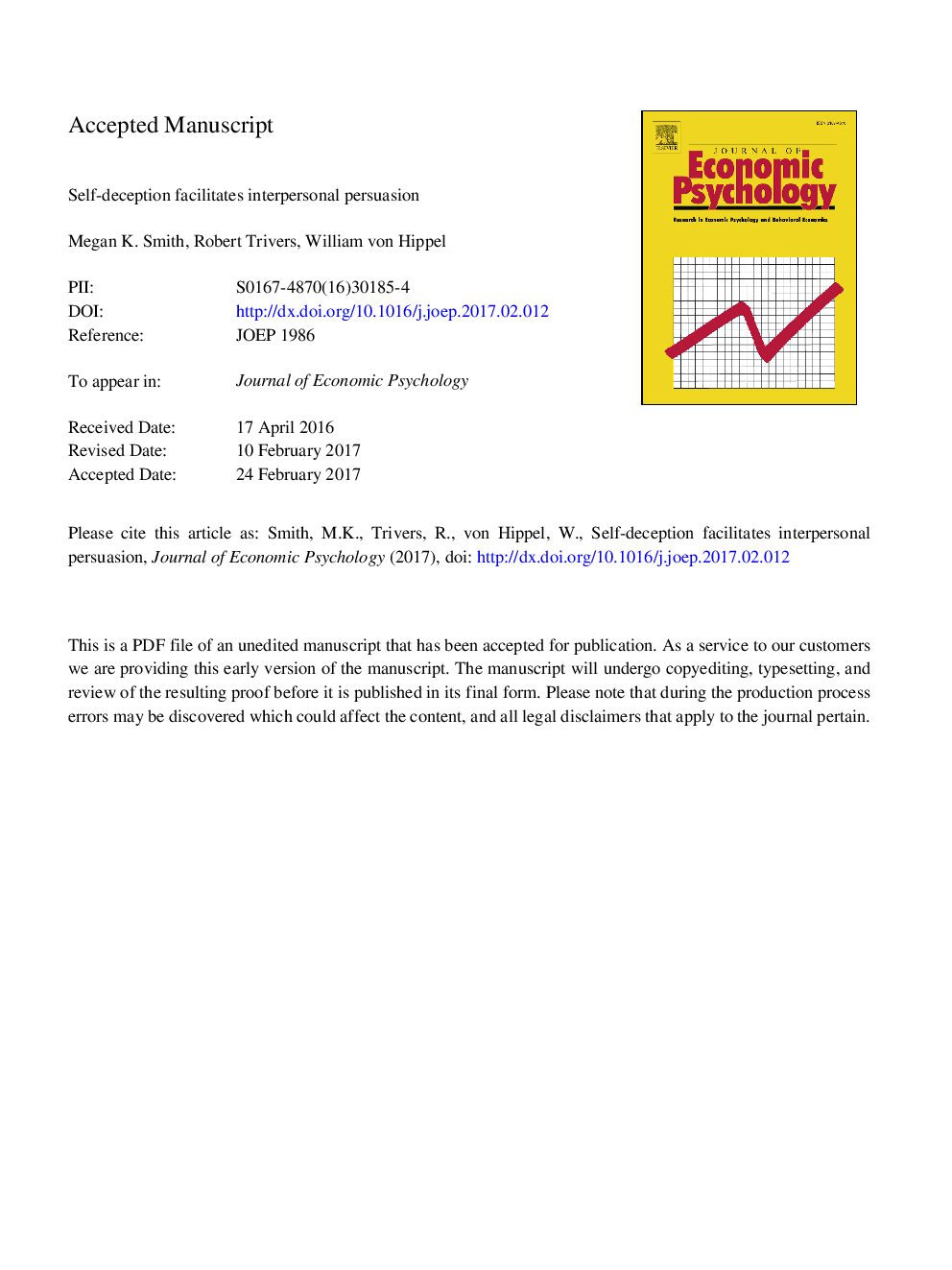| Article ID | Journal | Published Year | Pages | File Type |
|---|---|---|---|---|
| 7244134 | Journal of Economic Psychology | 2017 | 28 Pages |
Abstract
Self-deception is both commonplace and costly, which raises the question of what purpose it might serve. According to the dominant explanation in psychology and economics, self-deception is an intrapersonal process that fortifies and protects the self from threatening information. An alternative possibility is that self-deception evolved as an interpersonal strategy to persuade others. To investigate interpersonal aspects of self-deception, we gave people a persuasive task and measured their information processing biases and their persuasiveness. Results revealed that people who were financially motivated to persuade another person in a particular direction demonstrated a self-deceptive information processing bias consistent with their persuasive goals. This information processing bias led people to convince themselves of the veracity of their persuasive goal, and subsequently to be more persuasive to others. These findings suggest that self-deception has interpersonal benefits that offset its costs.
Related Topics
Social Sciences and Humanities
Business, Management and Accounting
Marketing
Authors
Megan K. Smith, Robert Trivers, William von Hippel,
